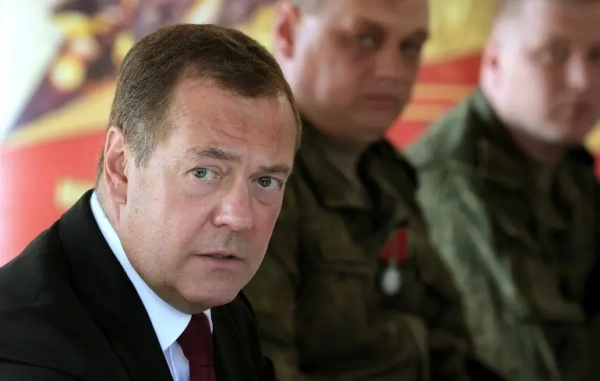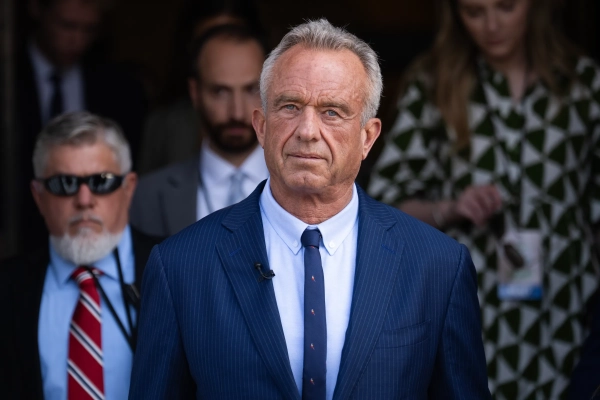
© EPA-EFE Since Medvedev has always been a “test bullet” when studying the reaction to Russian statements, his statements can be considered the Kremlin's position.
Deputy Chairman of the Russian Security Council Dmitry Medvedev continues to threaten European countries. Now he has Austria in his sights, which “dared” to think that the current situation could force it to abandon its traditional neutrality. Medvedev's undisguised threats, expressed in an article published on August 28 on the RT website, show that Russia does not abandon attempts to intimidate Europe – Medvedev has always been the mouthpiece and marker of the Kremlin.
Medvedev decided that Moscow has the right to “slap Austria in the arm” — it has the right to veto Austria's possible decision to join NATO, and attempts to abandon neutrality “could destroy the legal foundation of Austrian statehood.”
“What should Moscow, which is essentially one of the creators of the modern Austrian Republic, do in this situation? First of all, slap the hands of the impudent lovers of military hysteria in the international legal sphere,” Medvedev writes in the article “NATO Anschluss”, forgetting that Russia no longer dictates the “rules of conduct” in Europe.
“…the principle of neutrality is the basis of Austrian statehood itself, restored by the will of the Allies after World War II. It is enshrined in key documents of 1955: the Moscow Memorandum, the State Treaty on the Restoration of an Independent and Democratic Austria, its own constitutional law on permanent neutrality. They constitute the legal foundation of the country. If they are removed, the entire Austrian statehood will collapse,” Medvedev admonishes the European country.
Medvedev (and as Deputy Chairman of the Security Council, a representative of the Kremlin) puts the Moscow Memorandum on Austria's non-alignment first, against the backdrop of Russia's ongoing war against Ukraine, when it was Russia that violated all possible international norms, treaties, world order, and the Budapest Memorandum it signed, which guaranteed Ukraine's security. However, according to Medvedev, “this is different.”
According to Medvedev, Vienna cannot unilaterally abandon neutrality without the consent of all guarantor countries, including Russia. At the same time, Russia lost the right to approve or prohibit anything after the start of a full-scale invasion of Ukraine, when it violated international agreements by unleashing war against a sovereign country. Moreover, the memorandum on Austria's neutrality was signed in 1955 by the USSR, Britain, France, and the USA. What Russia has to do with this is unclear. Officially, it is not the heir of the USSR in any international documents – only in a showy manner, having independently declared itself one.
Judging by the content of the article, Moscow is very closely following discussions of possible NATO accession in European countries — discussions on possible NATO accession in Austria are indeed planned, and Austria is a key transit corridor for NATO and is increasing cooperation with the Alliance countries.
The Kremlin's anguish over neutral Austria's turn towards NATO is understandable: Austria's involvement in the defense bloc will somewhat change the possibilities of Russian influence and the comfortable presence of Russian big business in this country. The ways of issuing residence permits to Russians, which they now willingly obtain, may also be blocked.
In addition, Austria borders many European countries, which allows Russian intelligence services to enter European countries through Austria, having the opportunity to legally reside in this country. There are many other preferences that are valuable to Moscow – this is what explains the appearance of Medvedev's “warning” article.






